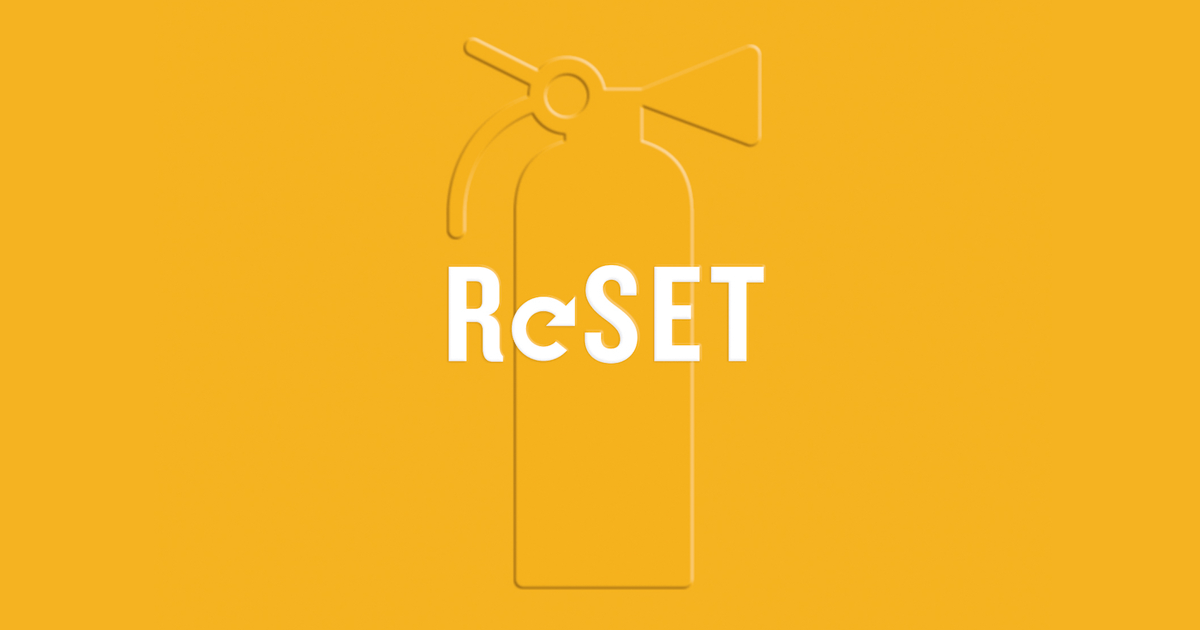There’s no doubt that life is difficult. We are finite creatures who encounter an infinite number of opportunities. This forces us to make constant decisions between better and best, between the millions of things we could do and the few we actually should do. We are also weak creatures who have limited strength, foolish creatures who have limited wisdom, and idolatrous creatures who cannot even trust our own hearts and minds. It’s no wonder, then, that we often find ourselves overburdened with the cares and concerns of life.
What we need from time to time is a reset, a return to a purposeful and sustainable existence. This is the subject of David Murray’s book Reset: Living a Grace-Paced Life in a Burnout Culture. His book is written specifically for men (he and his wife have co-authored a forthcoming companion volume for women) and means to show that “God has graciously provided a number of ways for us to reset our broken and burned-out lives, and to help us live grace-paced lives in a burnout culture.” And while the book is applicable to all men, the particular focus is ministry leaders.
The book’s genesis was in Murray’s own health crisis. He was only in his forties when stress and overwork began to impact his health in a severe and potentially deadly way. A tightness in his neck became pressure in his chest and arms which became a diagnosis of blood clots in both lungs. Already in his hospital bed he came to see God’s mercy in this, for God had forced him to slow down and to reevaluate his life. “That prompted me to begin developing an informal program that I now call the Reset process. I have used it with numerous men, and now, through this book, I want to help you reset your life so that you can avoid crashing, or recover from it, by establishing patterns and rhythms that will help you live a grace-paced life and get you to the finish line successfully and joyfully.”
To do this, he borrows the analogy of a vehicle that needs to visit a number of repair bays. First is “Reality Check,” which provides an evaluation of life and some of the warning signs that a crash may be imminent. Then comes “Review,” which is a kind of self-assessment to understand what led to this need for a reset. It is followed by “Rest,” which tells of the importance of nightly rest. Then comes “Re-Create,” which advocates deliberate, guilt-free recreation, “Relax,” which promotes regular daily, weekly, quarterly, and annual patterns of relaxation, and “Rethink,” which helps set appropriate priorities by establishing the matter of identity. “Reduce” offers the freedom of clarifying purpose by removing matters that are extraneous, “Refuel,” discusses appropriate patterns of eating and emotional engagement, “Relate,” discusses fellowship with God, a spouse, children, and friends, and “Resurrection,” tells how to go through life at a grace-based pace rather than one that is rocket-propelled.
Reset is a helpful book that offers wisdom that will help men avoid patterns that lead to burnout. For those who have already experienced it, it will help them avoid repeating the errors that led them there. It does not promise a life of ease, but it does promise a life that is sustainable, a life that is purposeful, and a life that brings glory to God.










